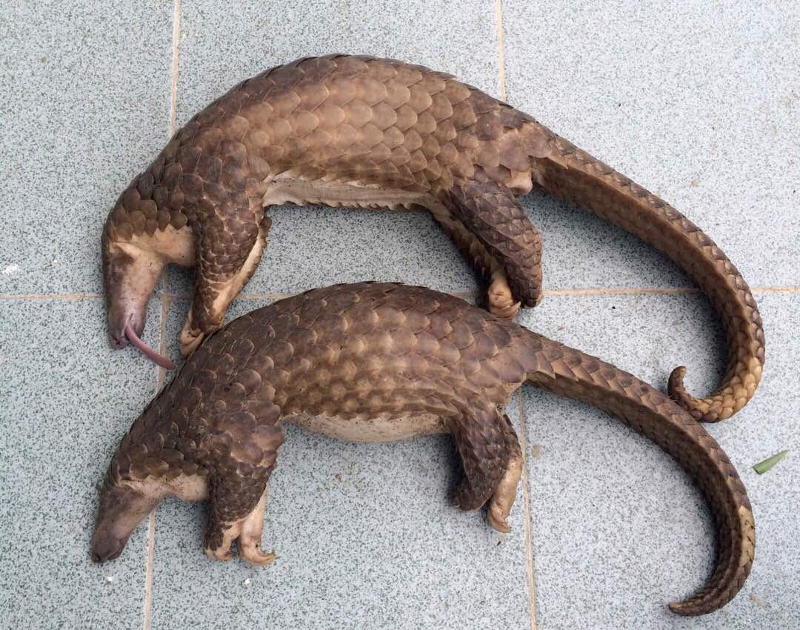KOTA KINABALU, April 26 ― Ah Tan is a freelance guide catering to Chinese tourists and makes a living by knowing their holiday desires. For the most part, these revolve around Sabah’s natural jewels: the beautiful islands and beaches, forests and mountains.
In the last few years, however, Ah Tan said that Chinese tourists have begun to associate Sabah with something more exotic ― exotic meat, that is.
“I’ve gotten tourists asking me about where they can get ‘exotic meat’. As stereotypes go, the Chinese have a taste for anything rare. Sometimes, they really believe that many animals have medicinal powers,” he told Malay Mail Online.
“Some of them told me that Sabah, with its jungles, is known as a haven for exotic meat like pangolins, tortoises, monkeys, orangutans, wild boar and also seafood like turtles and sharks fin.”
As a registered tour guide, Ah Tan risks losing his licence if he is caught taking guests to partake in such illegal meat.
Consumption of local wildlife, sometimes protected and endangered animals, is a practice among some natives, one which the Sabah Wildlife Department has been working hard to curb by educating locals on the value of their fauna.
But it becomes a bigger problem when the consumption extends to tourists.

The department’s enforcement chief, Mohd Soffian Abu Bakar, explained that for many years, they have been battling poachers who smuggle the wildlife out for international consumption, but these days, the problem is distinctly closer to home.
“Nowadays, perpetrators no longer just bring our wildlife out. People now come here to consume them. There are more and more direct flights from China these days and they do not always come through registered channels,” he said,
Mohd Soffian said that they have received more and more information about unlicensed “tour operators” who market their services via social media platforms such as WeChat, Weibo and Facebook, offering everything from luxury boat trips and accommodation, to exotic dinners.
“We are currently investigating one case from a raid recently. The operators had rented a home in a suburb here, and had about 12 guests staying there, all of them booked in for an ‘exotic’ meal.
“They were three local hosts, including a cook, who was about to prepare a meal from two live pangolins, which we had found at the site,” he said, adding that pangolins seem to be the most popular choice for its perceived medicinal benefits in purportedly curing asthma and preventing cancer.
Mohd Soffian declined to reveal further details, however, as case is under investigation, but did divulge that one suspect, the cook, is currently out on bail while investigation is ongoing.
Prosecuting such cases can also be difficult even when the perpetrators are caught red-handed.
Last year, the department’s investigative team raided a restaurant in Penampang, catching a group of mainland Chinese tourists in the act of consuming several dishes of exotic meat.
The group were brought to the restaurant to partake in a special meal of tortoises and pangolins, and the dishes were on the table. But the case never made it to court.
“The owner of the restaurant was not liable. The people who brought the animals were not there. The tourists and their guide gave their statement, but it was not enough.
“To make matters worse, because the meat was already cooked, we could not get them analysed properly. There’s a lot that goes into prosecuting a case and getting the DNA is a big part of the investigation and requires a lot of effort to get it right,” he said.
According to him, the restaurant has since closed down, but the business has probably just moved elsewhere.

“These businesses could likely be run by former middlemen of wildlife traffickers. Now that the number of wildlife has decreased, it may be harder to find, so these middlemen now go into business for themselves, still working with local hunters and collectors, but instead of sending them out of the country, they make a tourist business out of it,” he said.
Mohd Soffian said they have heard of groups that were taken on cruises out of the city, where exotic meals would be served onboard, but there is no way to know how prevalent cases such as these really are.
“We have seen the online ads for it, but cracking down on them is another thing. In the past, we have conducted raids, only to have them escape or get rid of the evidence before we can do anything,” he said.
Chinese nationals are the largest international visitors to Sabah, and thought to be responsible for the increase in poaching and related businesses despite the dwindling wildlife here.
Tussling for patronage, some of the businesses are also becoming increasingly creative with their offerings.
“I have heard of groups who take tourists on their own ‘hunting tour’ in the east coast. They have set it up like a game, where you can ‘hunt’ for your own dinner in the forests,” said Ah Tan.
“The marketing was done over the internet, even before they came here, they already knew what to look for. Its an unscrupulous business, and authorities seem to have a hard time cracking down on these illegal tour operators,” he said.
For Mohd Soffian, his team, and the department’s Wildlife Rescue Unit, knowing that such businesses exist and possibly thrive is a taunted existence.
“We have limited resources and catching crimes like this is no mean feat. We need the community’s help to stop this,” he said.
For a day in the life of a wildlife rescue ranger in Sabah, catch the latest episode of Borneo Wildlife Warriors, a new web series that showcases the hard work behind saving Sabah’s exotic wildlife that gets caught in human wildlife conflicts.
The last episode in the first series has its host, Aaron “Bertie” Gekoski, tending to an injured pangolin which has taken a turn for the worst.




















